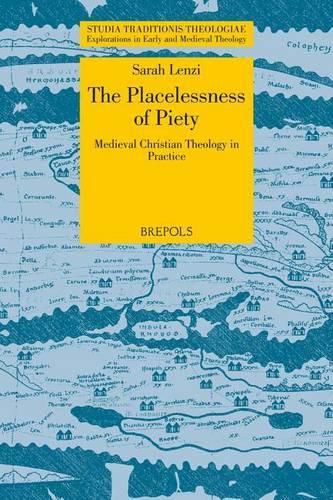Readings Newsletter
Become a Readings Member to make your shopping experience even easier.
Sign in or sign up for free!
You’re not far away from qualifying for FREE standard shipping within Australia
You’ve qualified for FREE standard shipping within Australia
The cart is loading…






The Christian practice of the Stations of the Cross has historically largely been the purview of devotional authors. In this academic study, the Reverend Doctor Sarah Lenzi revisits the evidence-based history of the western European development of the Stations as it was laid out at the turn of the twentieth century. She begins with a discussion of how this history is often neglected in favor of a mythic history that places the development in Jerusalem at the time of the Crusades and she then reestablishes the western origins. While the early twentieth-century authors who worked on the Stations are invaluable for the history they uncovered, there were gaps in the analyses they offered based on that history. In the chapters that follow, Rev. Dr. Lenzi works to debunk those interpretations and to offer a new understanding of the development of the Stations of the Cross. A close examination of pilgrimage texts as well as medieval meditation manuals puts this particular practice in the broader context of Medieval Christian history and ritual, and works to place it appropriately on the spectrum of pietistic behavior. With a new understanding of the development of the Stations of the Cross, Rev. Dr. Lenzi helps to explore notions of time, place, and space in Medieval Christianity, arguing for an understanding of placelessness in Christian piety that is enabled through intentional ritualized use of imagination, narrative, body, and word.
$9.00 standard shipping within Australia
FREE standard shipping within Australia for orders over $100.00
Express & International shipping calculated at checkout
The Christian practice of the Stations of the Cross has historically largely been the purview of devotional authors. In this academic study, the Reverend Doctor Sarah Lenzi revisits the evidence-based history of the western European development of the Stations as it was laid out at the turn of the twentieth century. She begins with a discussion of how this history is often neglected in favor of a mythic history that places the development in Jerusalem at the time of the Crusades and she then reestablishes the western origins. While the early twentieth-century authors who worked on the Stations are invaluable for the history they uncovered, there were gaps in the analyses they offered based on that history. In the chapters that follow, Rev. Dr. Lenzi works to debunk those interpretations and to offer a new understanding of the development of the Stations of the Cross. A close examination of pilgrimage texts as well as medieval meditation manuals puts this particular practice in the broader context of Medieval Christian history and ritual, and works to place it appropriately on the spectrum of pietistic behavior. With a new understanding of the development of the Stations of the Cross, Rev. Dr. Lenzi helps to explore notions of time, place, and space in Medieval Christianity, arguing for an understanding of placelessness in Christian piety that is enabled through intentional ritualized use of imagination, narrative, body, and word.